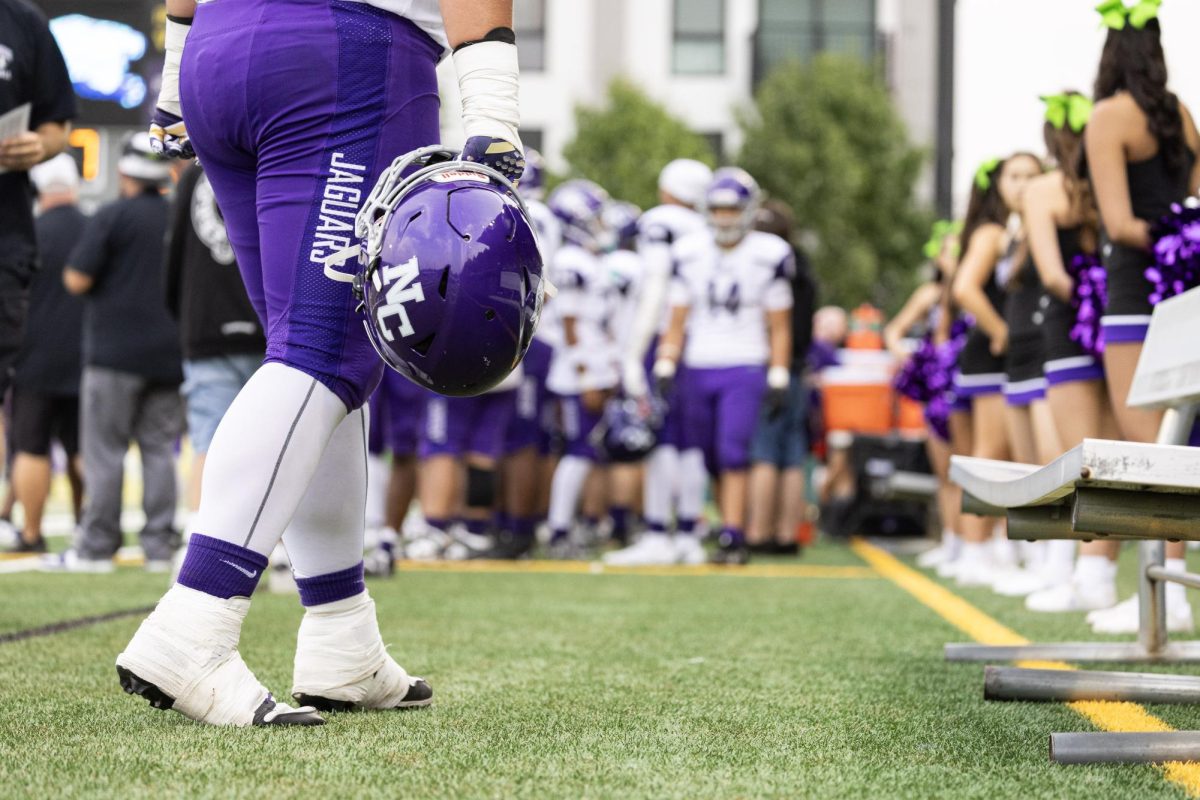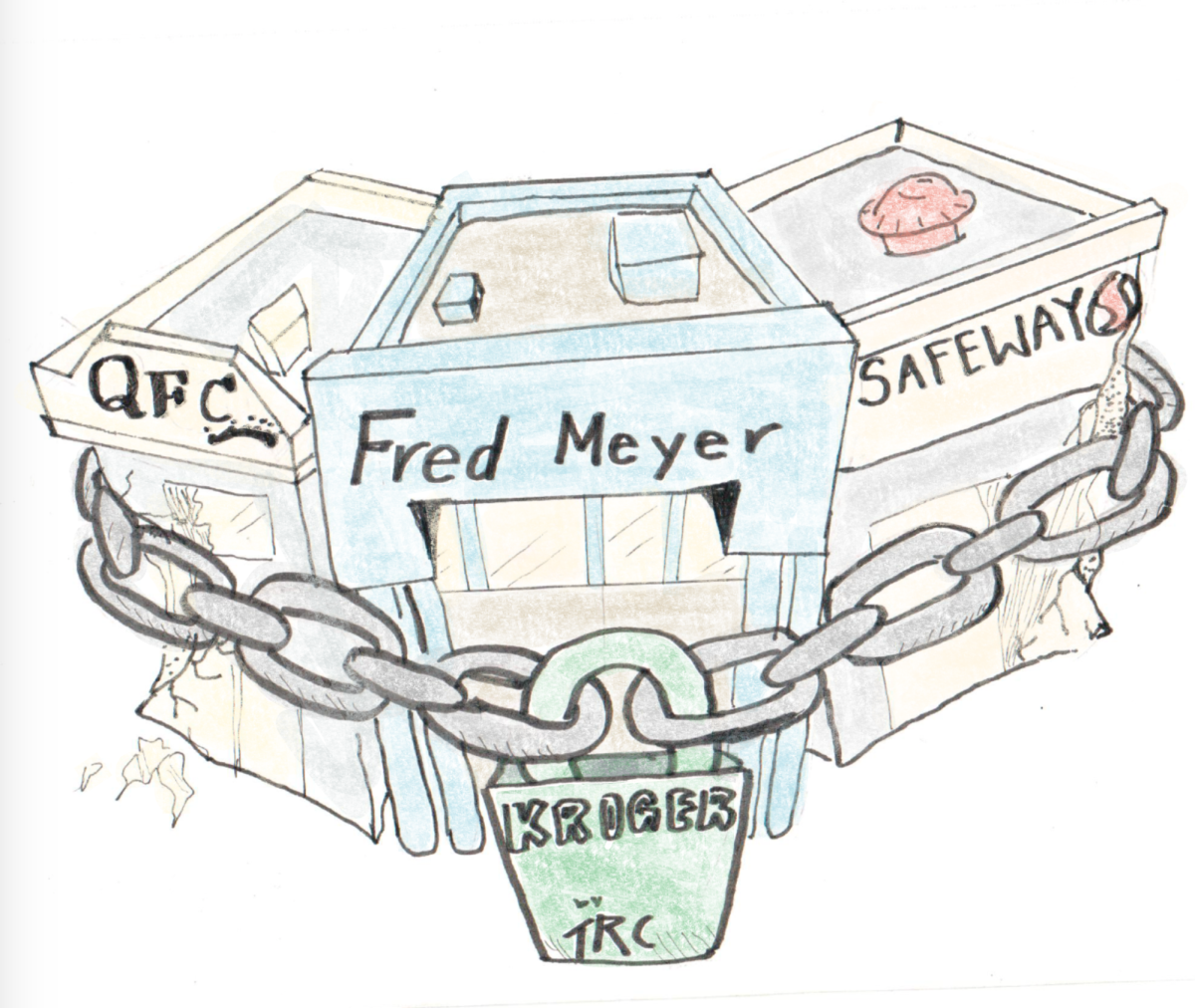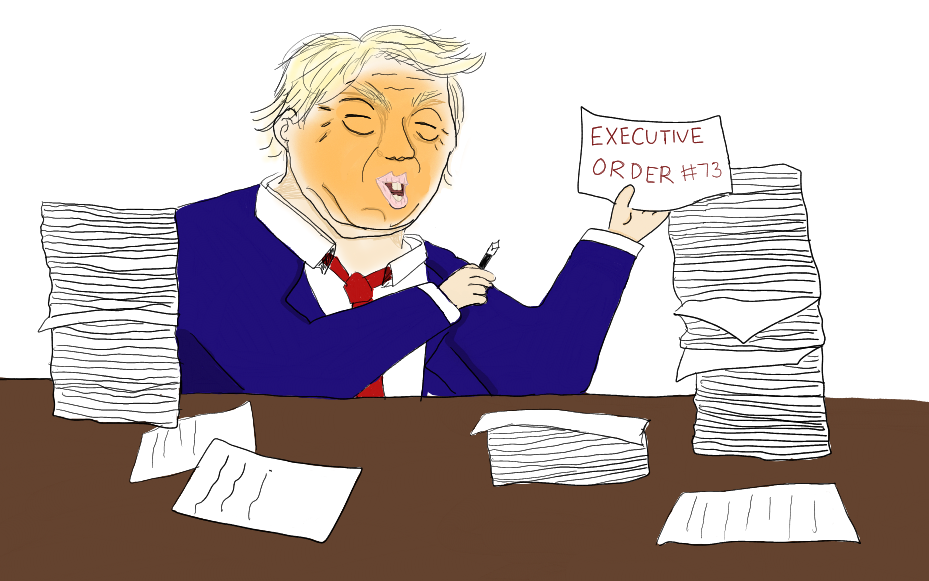Originally Published in the November 26th Print Publication
Kroger may not be heard of often, but is affecting day to day lives through local grocery stores. Kroger is one of the largest supermarket chains in Washington state, that sells almost every food you can think of; all the way from baby food to meat to desserts. Though it may seem to save money by buying their groceries because of the low prices, they are steadily draining consumers’ money. “We know prices will not go down,” Bob Ferguson said in his lawsuit that blocks Krogers and Albertsons from merging–two of the largest chains–taking numerous stores with them.
These two giants operate approximately 194 supermarkets in just the Bellevue-Tacoma-Seattle metropolitan area, while operating more than a total of 300 supermarkets in Washington. In October 2022, both of these brands announced their plans to merge. However, Ferguson states in his lawsuit against this merger that it violates our state’s antitrust laws, therefore reduces Kroger-Albertsons competitions, “likely [leading] to higher prices, lower quality, and less variety in many local markets throughout Washington,” Ferguson said in his lawsuit.
FredMeyer and QFC are under Kroger, while Safeway and Haggens are under Albertsons. If this merger is successful, these four grocery chains limit consumers’ shopping options, due to the increased prices. For example, these supermarket chains have approximately 5,000 stores across the country and make a combined annual revenue that exceeds $200 billion. More than half of the houses in the metropolitan area shop at stores owned by either Kroger or Albertsons. When a student from Woodinville High School is asked about increasing grocery prices, this is how he responds. “Yes, I have experienced the fluctuations in grocery prices and it concerns me. When I plan to move on to college and further on, I am worried that prices may increase even more and make it difficult to afford essentials,” Tim Lopez said. This shows how concerning increasing grocery prices are.
Tom Moriarty, Albertsons vice president writes that the merger is illegal, “you are basically creating a monopoly in grocery with the merger… [it] makes no sense.” This merger outcompetes surrounding supermarkets that are small businesses, or family chains like PCC, which ultimately leads to concerns that these might fail, leaving no cheaper alternatives for consumers. “Grocery prices overall go up a bit but depending on the item’s popularity, some go up and down and others keep going up like eggs, mushrooms, milk.” Lulu Yao, an HR worker, said when asked if the fluctuations in prices affect her family in the future. Only non-unionized brands like Costco, Amazon and Walmart benefit from the merger being blocked because they are able to expand further into the grocery and shopping scene.
Kroger and Albertsons already hold significant market power in Washington state, creating a ‘near-monopoly.’ Smaller supermarket chains adjust their prices to compete with these giants. If the merger proceeds, it further limits competition, possibly keeping grocery prices high. So, the next time you go grocery shopping just remember: looks might not but prices can deceive you.











